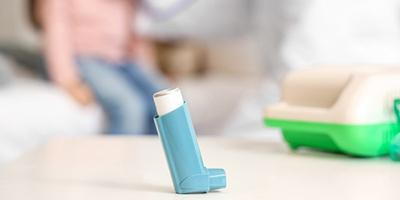Pediatric Asthma: Tips for Management and Prevention

- posted: Jul. 18, 2024
Childhood asthma cannot be cured, and although symptoms can sometimes persist into adulthood with the proper care, and help from your pediatrician, the symptoms can be successfully managed by following the right treatment plan. Asthma treatment is multifaceted and involves medication, lifestyle changes, and following up with doctor's visits. Learn more about how asthma can be treated by reaching out to Dr. John Vann, Dr. Tricia Schmit, and Nurse Practitioner, Nicholle Bruhn of Omaha Childrens Clinic in Omaha, NE.
Prevention: Reduce Asthma Triggers
Asthma triggers can be just about anything that causes asthma flare-ups and asthma symptoms to worsen, potentially leading to what's known as an asthma attack.
Recognizing and reducing exposure to these triggers is a very important part of any asthma treatment plan.
Typical triggers can include allergens, irritants, and respiratory infections, but strong emotions and exercise can also trigger asthma symptoms. This doesn't mean that your child will have to avoid taking part in physical activity, simply that they'll need to be aware of how and when to take their medication to manage their symptoms.
Understanding The Medication
Based on their needs and treatment plan your child may be prescribed a variety of medications to treat their asthma symptoms, these typically come in two different forms, quick relief and long-term control medication.
Bronchodilators are taken with an inhaler or a nebulizer and are normally given as soon as asthma symptoms begin to help them breathe easier and relax their airway, offering rapid relief.
Long-term medication can help prevent these symptoms, these can include anti-inflammatories, anticholinergics, and allergy medication, among others.
Productive Doctor Visits
Your child's doctor can help you identify potential asthma triggers as well as prescribe the right medication to reduce their symptoms. Regular visits with their doctor can make sure that their treatment plan is up to date and that any necessary adjustments are being made. So it's important to come to these visits with questions of your own if you have them, and any observations you may have about your child's asthma.
Asthma Treatment in Omaha, NE
If your child struggles with asthma and you're exploring treatment options you can schedule a visit in Omaha, NE, with Dr. Schmit, Dr. Vann, and Nicholle Bruhn, CPNP-PC of Omaha Childrens Clinic by dialing (402) 330-5690.

- posted: Jul. 18, 2024
Childhood asthma cannot be cured, and although symptoms can sometimes persist into adulthood with the proper care, and help from your pediatrician, the symptoms can be successfully managed by following the right treatment plan. Asthma treatment is multifaceted and involves medication, lifestyle changes, and following up with doctor's visits. Learn more about how asthma can be treated by reaching out to Dr. John Vann, Dr. Tricia Schmit, and Nurse Practitioner, Nicholle Bruhn of Omaha Childrens Clinic in Omaha, NE.
Prevention: Reduce Asthma Triggers
Asthma triggers can be just about anything that causes asthma flare-ups and asthma symptoms to worsen, potentially leading to what's known as an asthma attack.
Recognizing and reducing exposure to these triggers is a very important part of any asthma treatment plan.
Typical triggers can include allergens, irritants, and respiratory infections, but strong emotions and exercise can also trigger asthma symptoms. This doesn't mean that your child will have to avoid taking part in physical activity, simply that they'll need to be aware of how and when to take their medication to manage their symptoms.
Understanding The Medication
Based on their needs and treatment plan your child may be prescribed a variety of medications to treat their asthma symptoms, these typically come in two different forms, quick relief and long-term control medication.
Bronchodilators are taken with an inhaler or a nebulizer and are normally given as soon as asthma symptoms begin to help them breathe easier and relax their airway, offering rapid relief.
Long-term medication can help prevent these symptoms, these can include anti-inflammatories, anticholinergics, and allergy medication, among others.
Productive Doctor Visits
Your child's doctor can help you identify potential asthma triggers as well as prescribe the right medication to reduce their symptoms. Regular visits with their doctor can make sure that their treatment plan is up to date and that any necessary adjustments are being made. So it's important to come to these visits with questions of your own if you have them, and any observations you may have about your child's asthma.
Asthma Treatment in Omaha, NE
If your child struggles with asthma and you're exploring treatment options you can schedule a visit in Omaha, NE, with Dr. Schmit, Dr. Vann, and Nicholle Bruhn, CPNP-PC of Omaha Childrens Clinic by dialing (402) 330-5690.
Our Location
Find us on the map
19102 Q Street, Ste 102
Omaha, NE 68135, United States
